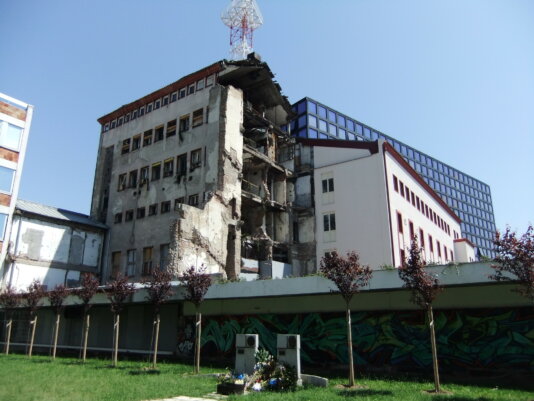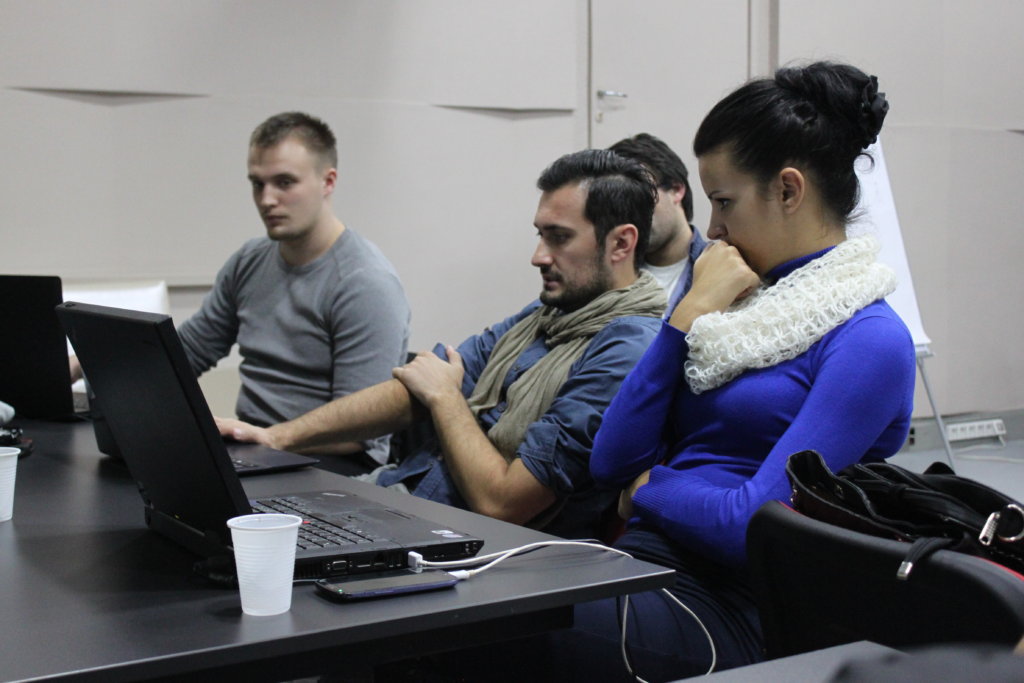- About
- Topics
- Story
- In-Depth
- Picks
- Opinion
- News
- Donate
- Signup for our newsletterOur Editors' Best Picks.Send
Read, Debate: Engage.
| April 26, 2021 | |
|---|---|
| topic: | Human Rights |
| tags: | #NATO, #Radio Television Serbia (RTS), #Balkan Wars, #media |
| located: | Serbia |
| by: | Katarina Panić |
Journalist Boban Kovačević was one of some 150 workers on the night shift. He was about to run the news at 2:00 am. Slightly before, he entered the studio. One of the cameramen was with him; one was left outside. The missile hit the building at 2:06 am.
"Since there was no need for two cameramen on three cameras, having in mind that I am alone, Aca remained in front of the studio. If he had come in, he would be alive now," Kovačević trstified in the Chronicle of Announced Death - a documentary by former RTS journalist Svetlana Janićijević.
Twenty-two years after the most controversial attack during the 78-days of NATO's Operation Allied Force, the public in Serbia is divided over who is responsible.
All the other targets all over the country have been evacuated from civilians regularly. The RTS was the only exception. Conservatives believe NATO is only to blame, while progressive elements in society call for the accountability of both NATO and domestic authorities.
Firstly, NATO announced it had marked the RTS as a target. "Serb radio and tv is an instrument of propaganda and repression. It has filled the airwaves with hate and with lies over the years and especially now. It is, therefore, a legitimate target in this campaign,” air commodore David Wilby stated at the press conference held at NATO Headquarters in Brussels on April 8, 1999.
“If President Slobodan Milošević would provide equal time for Western news broadcasts in its programmes without censorship three hours a day between noon and 1800 and three hours a day between 1800 and midnight, then his tv could become an acceptable instrument of public information,” he added.
Secondly, the foreign media staff who had been using RTS facilities left the building before the attack. "That caused the anxiety. It caused fear amongst the staff of RTS. And some of those people that we knew were crying because they knew what it meant. If CNN was leaving, the danger level had gone from orange, say, to extremely red," said CNN's Brent Sadler.
Finally, tensions began to rise when workers noticed that parking was suddenly banned around the building and firefighters and ambulances were present in the area around the clock, seven days a week. They started to put pressure on management to invoke order number 37. Namely, the government ordered RTS to relocate the staff and the airing from the downtown Belgrade station to the suburb Košutnjak in case of danger. Not only did general manager Dragoljub Milanović refuse to do so, but he also threatened that anyone who leaves the building after an air raid alert would be fired.
In 2002, Belgrade district court sentenced him to ten years in prison for failing to evacuate employees and for intentionally placing low-level RTS employees at risk to increase the number of civilian casualties and discredit NATO. All the other targets all over the country had been evacuated from civilians regularly.
Today, the journalistic community is divided over the issue, just as society as a whole is. The Journalists' Association of Serbia, UNS is forcing the government to insist on NATO's responsibility. On the other hand, the Independent Journalist Association of Serbia, NUNS, emphasises that, other than NATO, the Ministry of Defense and the Supreme Defense Council must be held accountable as well, believing political leadership at the time gave an order to Milanović to expose the workers to the attack. All agree on one thing: the families of the killed workers are still waiting for justice.
Amnesty international qualified the attack as a war crime. However, the committee set up by the International Criminal Tribunal for the Former Yugoslavia said there was no justification for the UN court to launch an investigation into whether NATO committed a crime. In addition to the rights groups, the international journalists' associations condemned the attack too.
Except for NATO, hardly anyone tried to justify the bombing by the unprofessional editorial policy of a public broadcaster. However, if you are a local independent journalist criticising the role of your government or state-run media, you risk being labelled an enemy spy, a traitor of your homeland and a foreign mercenary. It smelled like the 1999 spirit when the media had been ordered to inform "following national interests." Asking what it exactly means, the answer was "to love president Milošević".
Dragana Žarković Obradović, director of Balkan Investigative Reporting Network, BIRN Serbia, says
RTS is still the regular subject of debates in Serbian society. The criticism nowadays is mainly prompted by its editorial biases towards the government and the ruling party, coupled with the lack of pluralism and representation of the critical voices.
"So in that sense, we can say that RTS did not mature politically. It is still captured by the state and fully dependent on the public budget,” Obradović told FairPlanet. “Like the ruling political elite in Serbia today, it is an agent of relativisation of historical circumstances and the legacy of the nineties,” sha added. “For example, this year, on the eve of the anniversary of the start of the NATO bombing, RTS aired interviews with two former officials convicted by the Hague Tribunal for war crimes in Kosovo, Nikola Šainović and Vladimir Lazarević, giving them a chance to deny that crimes were committed.”
Image: Chris Wilkinson.
By copying the embed code below, you agree to adhere to our republishing guidelines.

